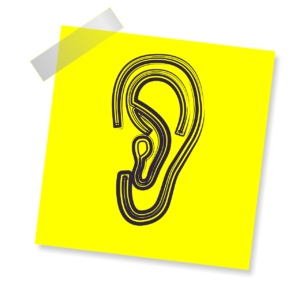We may not “treat” joint noise, but we still need to listen to the joint with tools like a good stethoscope or doppler.
 In a recent post, I focused heavily on why we should spend less time obsessing about the “noise” of joints.
In a recent post, I focused heavily on why we should spend less time obsessing about the “noise” of joints.
I even went so far as to state that joint noise should only be considered outward evidence of symptoms, rather than something that can be treated as a perfect solution or resolved with a piece of plastic.
I believe all of this is true for occlusion cases. But I’ll add a caveat: Joint noise is still important to consider because it’s an indicator of an unhealthy joint. This is why we need to listen closely …
Stethoscope, Doppler, or Other?
 There are multiple different tools you can use to listen to joint noises during occlusion cases.
There are multiple different tools you can use to listen to joint noises during occlusion cases.
So should you use them all or choose the one that works best for you and your patients?
I tend to find that most dentists have a preference in this case and that there isn’t really a right or wrong answer.
Relying on Your Patient’s Senses
If you’re going to use a stethoscope, use a real $250 medical grade stethoscope to listen to the joint.
 I like stethoscopes, but I tend to prefer a doppler because the patient can also hear the sound, whereas with a stethoscope they can only observe you observing them.
I like stethoscopes, but I tend to prefer a doppler because the patient can also hear the sound, whereas with a stethoscope they can only observe you observing them.
There’s something eye-opening for patients about being brought into the diagnostic process.
When you enable them to listen alongside you, you’re giving them a chance to develop a greater trust in your methods and ensuing treatment.
Regardless of which tool (or tools) you choose, start listening to joints! I’d hazard a guess that your dental school stethoscope is collecting dust somewhere in the depths of your office.
What’s your favorite tool for listening to joints and why? Let us know your thoughts in the comments!


